First Politecnico bicycle station in the Leonardo Campus
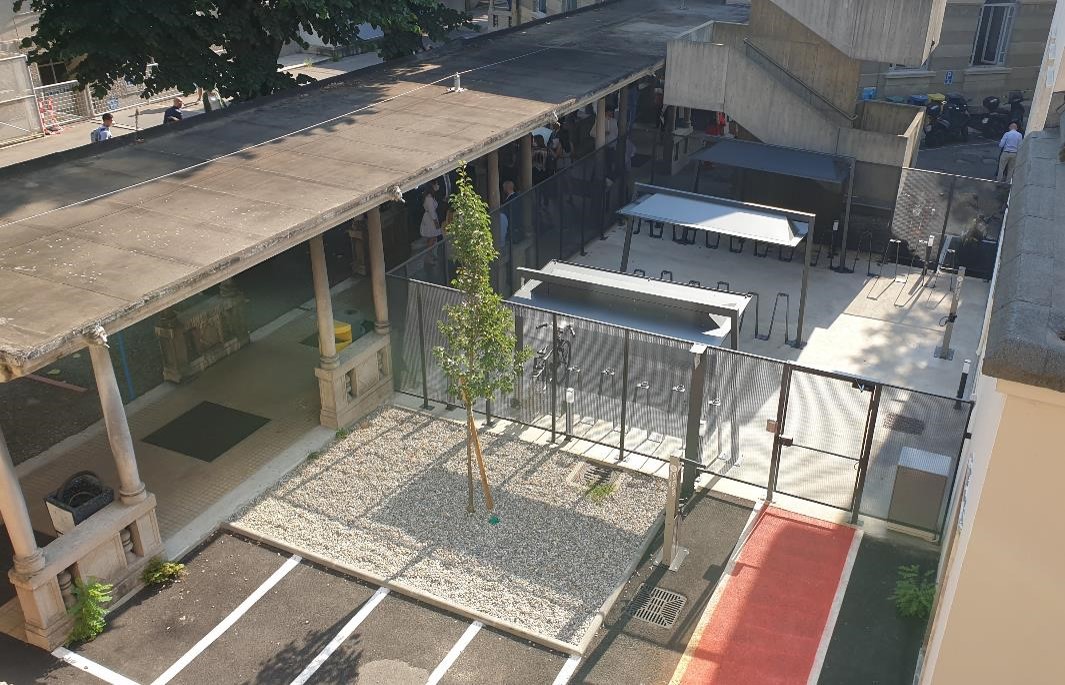
Among the initiatives to promote sustainable mobility, Politecnico di Milano recently activated a bicycle station in the Leonardo Campus.
Located between the building 5 and 9, the bike station offers 26 parking spots for bicycles or kick scooters and it is equipped with a Bicycle Repair Station, which provides all the necessary tools for small repairs.
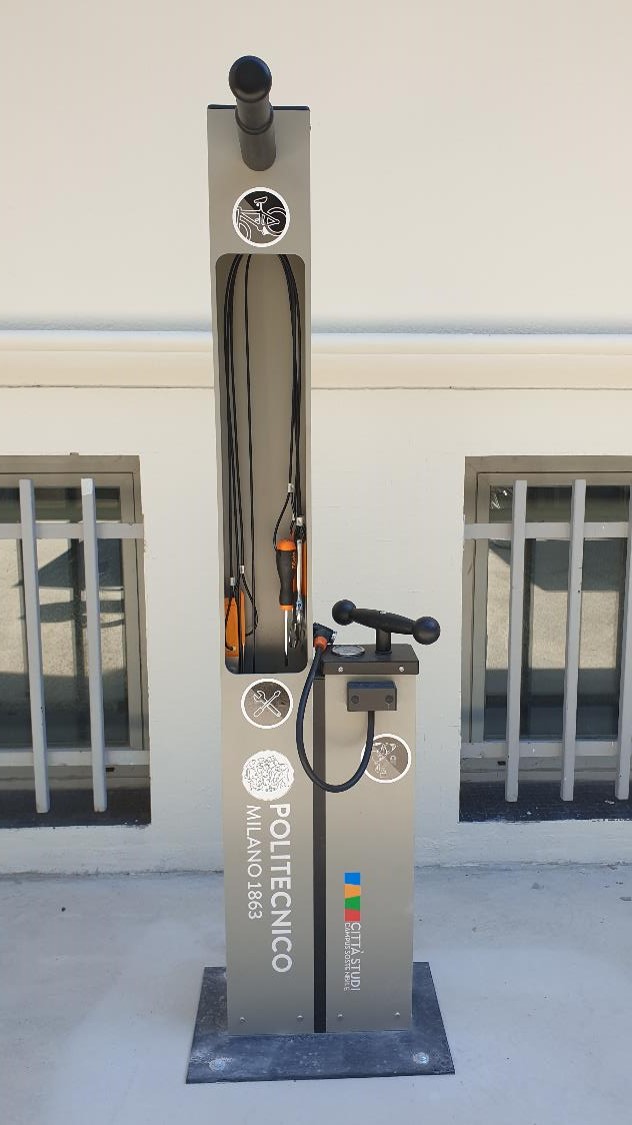
An overhang provides cover from the weather to most of the parking spots and power sockets are available to recharge electric veihicles.
The bike station can be entered only by active Polimi users using their badge (Policard or any other active badge), which needs to be swiped over the bottom right corner of the scanner.
This infrastructure is part of a series of initiatives carried out by the University to promote the 17 Sustainable Development Goals (SDGs) signed by the UN General Assembly in September 2015, especially the Goal 11 - Sustainable Cities and Communities. In particular, the constrution of bike stations is one of the priorities indentified by the Politecnico Mobility Action Plan, officially approved in the summer, which plans the installation of other similar spots in the Bovisa campus too.
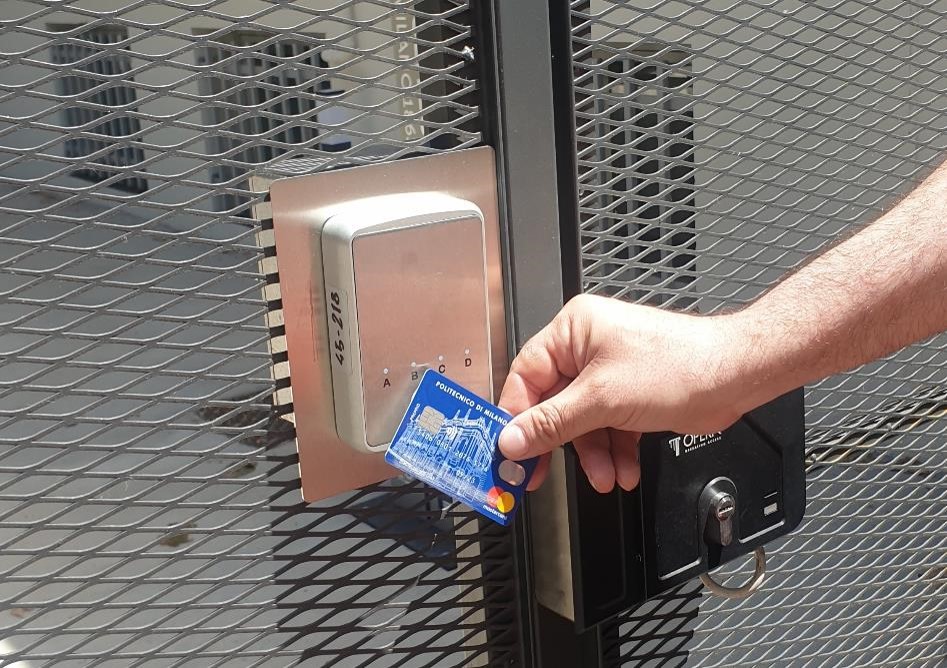
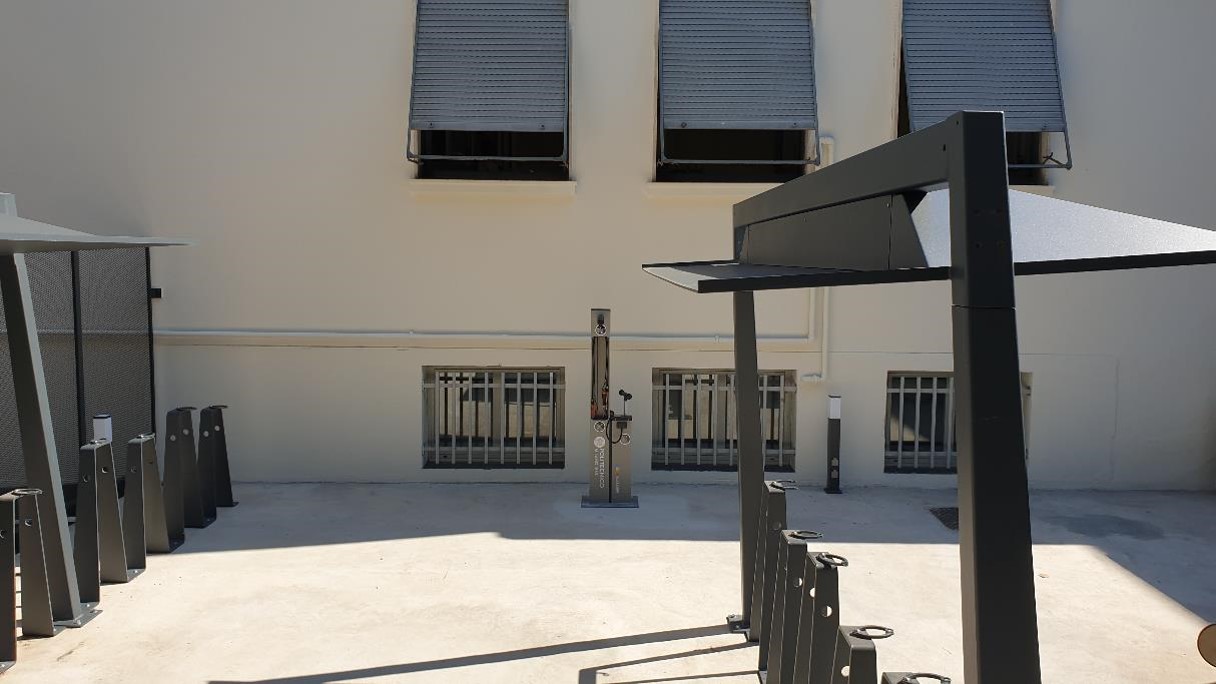
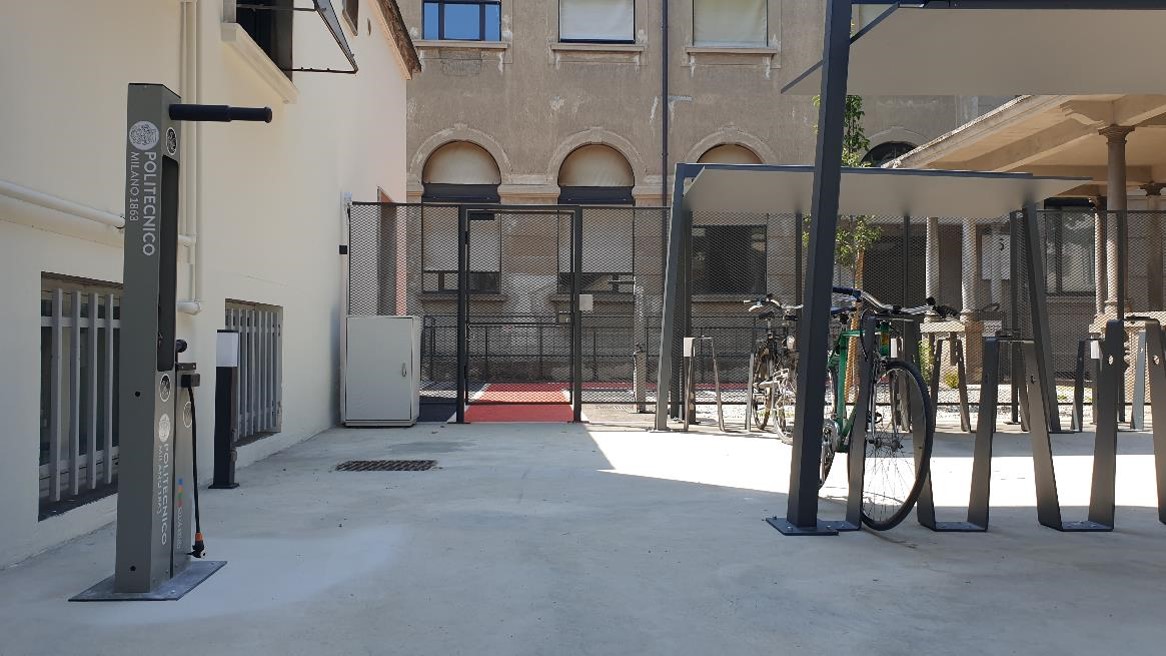
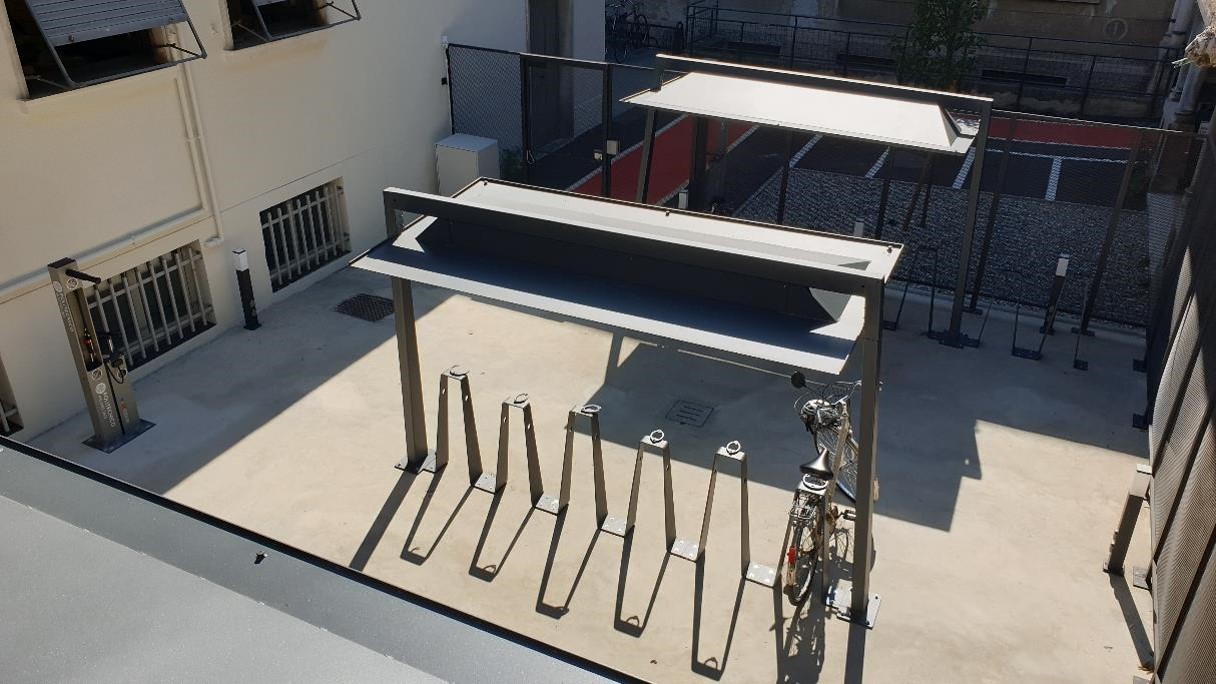
Goal #11: SUSATINABLE CITIES AND COMMUNITIES - MAIN SDG
Cycling makes cities more inclusive, resilient and sustainable. The higher the modal share of walking, cycling and public transport, the more sustainable the transport system is.
The University pursues this SDG by encouraging sustainable mobility through infrastructures (such as this bicycle station and the many racks present on the campuses) and agreements for shared mobility (from public transport to sharing/rental/purchase services).
Goal #3: GOOD HEALTH AND WELL-BEING
Cycling helps creating a more healthy and non-air-polluting lifestyle: physical activity reduces heart diseases and other negative impacts of sedentary lifestyles, while air quality improves when individual motorized transport is replaced by cycling.
The University's commitment to this goal consists in organizing initiatives (often also open to citizens) which favor the change of daily habits from a sustainable perspective (from tests drives of vehicles for active mobility, to targeted contests and citizen science projects), and sporting events open to all, such as the PolimiRun or the future PolimiRide.
Goal #9: INDUSTRY, INNOVATION AND INFRASTRUCTURE
Cycling enables people to switch from use of individual motorized transport to a combination of active mobility and public transport (or only active mobility if the distance allows it). More people using the bicycle regularly makes it easier for governments to build safe and resilient infrastructures and sustainable transport systems for economic development and human well-being.
The University hosts more than 1,200 parking spaces for bikes (of which almost 500 on the Città Studi campus), a number that will increase further in the coming years thanks to the provisions of the Politecnico Mobility Action Plan.
Goal #12: RESPONSIBLE CONSUMPTION AND PRODUCTION
The bicycle offers the opportunity to move goods, commuters and tourists in a sustainable way. In many urban areas, 50% of all goods deliveries could be done by bicycle and the increase of cycle tourism creates more options for sustainable tourism.
In this regard, the University promotes sharing mobility with dedicated agreements, through which vehicles can be used more efficiently by many different users. Another example is the bicycle workshop run by Polimi students, where you can repair your own bicycle and learn how to do so. Finally, the University promotes VENTO, a project born at Politecnico (DAStU) for the construction of a cycle infrastructure of over 700 km that runs along the banks of the Po river from Venice to Turin, capable of generating jobs and economies through a new idea of slow tourism.
Goal #13: CLIMATE ACTION
The bicycle offers the possibility for immediate climate action and is a symbol for decarbonizing transport and societies. Governments at all levels can take action by integrating cycling into their climate action policies, strategies, education and awareness raising campaigns.
The Polimi "Carbon management" project is dedicated to this SDG. Thanks to this project, the CO2 emissions inventory is carried out every year (naturally also considering the transport sector) and makes it possible to monitor the level of achievement of the reduction goals declared in the Polimi Mitigation Plan. The transport sector data is collected through a survey on mobility habits, which is carried out periodically and is also essential for the drafting of the Politecnico Mobility Action Plan.
Goal #17: PARTNERSHIP FOR THE GOALS
The civil society organizations and experts working on the promotion of cycling worldwide are supporting global partnerships to promote cycling and seek to increase the availability of high quality, up-to-date and reliable data on cycling, to support the development of successful cycling innovations and policies.
To pursue this SDG, the University collaborates with many external stakeholders, for example by joining the European project U-MOB Life (a university network that promotes sustainable mobility) and the Mobility Working Group of the Italian University Network for Sustainable Development (RUS), as well as collaborating with relevant territorial bodies (Municipality of Milan, Metropolitan City of Milan, Lombardy Region).
Some of the general information written above have been taken from a report written by the European Cyclist Federation called “Cycling delivers on the Global Goals” https://ecf.com/groups/cycling-delivers-global-goals
No parking spots available in the bicycle station? Find all the other bike racks avaiable inside the campus in the interactive map below.
For more information: mobility@polimi.it



